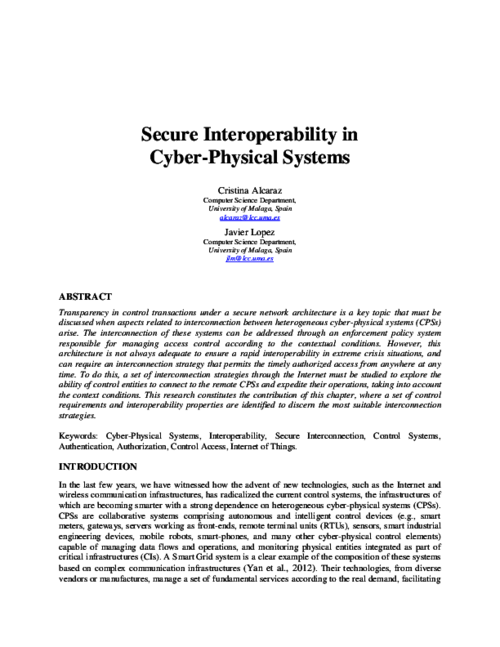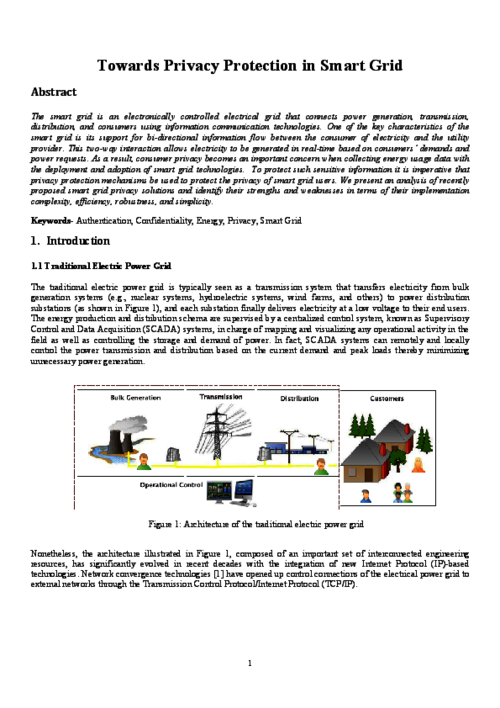 ]
] Security Solutions and Applied Cryptography in Smart Grid Communications, IGI Global, USA, IGI Global, pp. 137-158, 2017. DOI
Abstract
Transparency in control transactions under a secure network architecture is a key topic that must be discussed when aspects related to interconnection between heterogeneous cyber-physical systems (CPSs) arise. The interconnection of these systems can be addressed through an enforcement policy system responsible for managing access control according to the contextual conditions. However, this architecture is not always adequate to ensure a rapid interoperability in extreme crisis situations, and can require an interconnection strategy that permits the timely authorized access from anywhere at any time. To do this, a set of interconnection strategies through the Internet must be studied to explore the ability of control entities to connect to the remote CPSs and expedite their operations, taking into account the context conditions. This research constitutes the contribution of this chapter, where a set of control requirements and interoperability properties are identified to discern the most suitable interconnection strategies.

Wireless Personal Communications, vol. 73, Springer, pp. 23-50, Nov 2013, 2012. DOI
Abstract
The smart grid is an electronically controlled electrical grid that connects power generation, transmission, distribution, and consumers using information communication technologies. One of the key characteristics of the smart grid is its support for bi-directional information flow between the consumer of electricity and the utility provider. This two-way interaction allows electricity to be generated in real-time based on consumers’ demands and power requests. As a result, consumer privacy becomes an important concern when collecting energy usage data with the deployment and adoption of smart grid technologies. To protect such sensitive information it is imperative that privacy protection mechanisms be used to protect the privacy of smart grid users. We present an analysis of recently proposed smart grid privacy solutions and identify their strengths and weaknesses in terms of their implementation complexity, efficiency, robustness, and simplicity.
